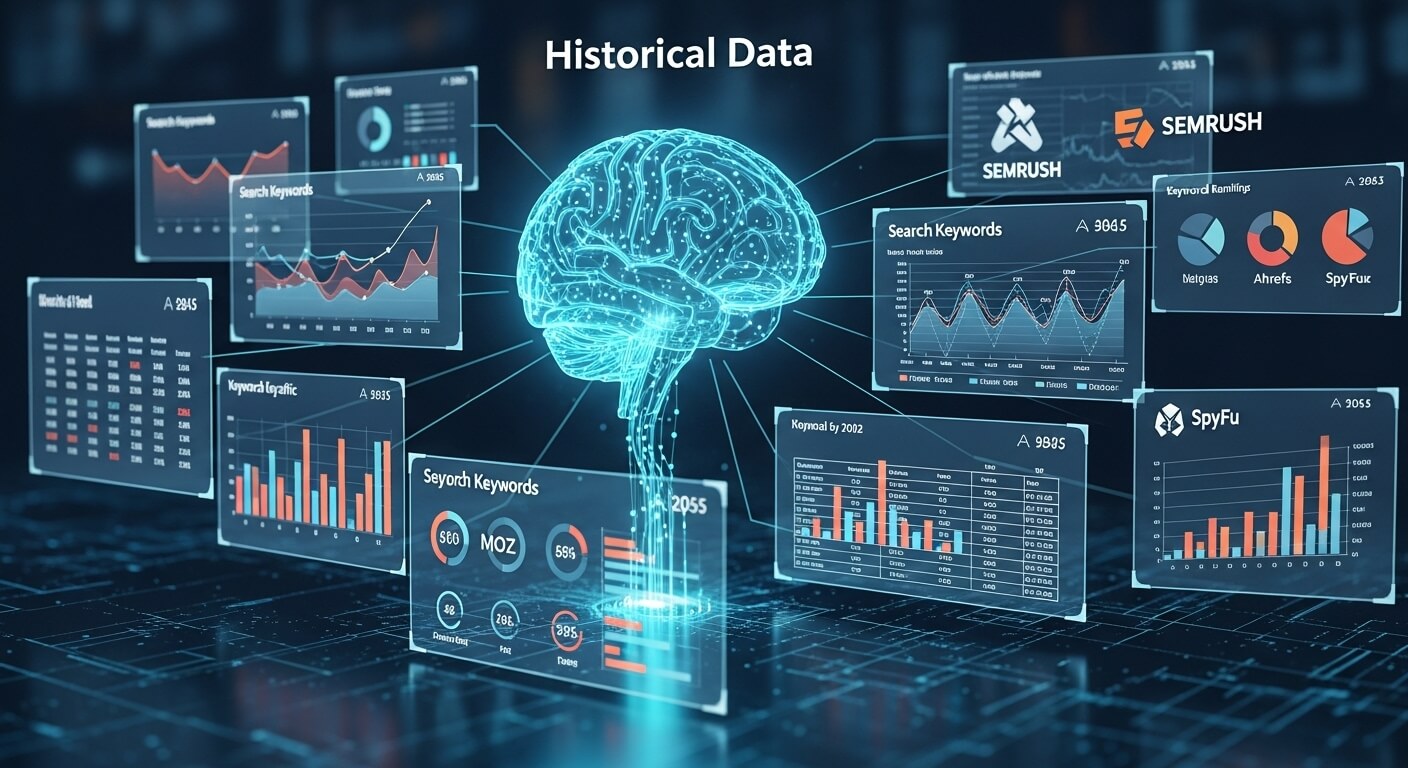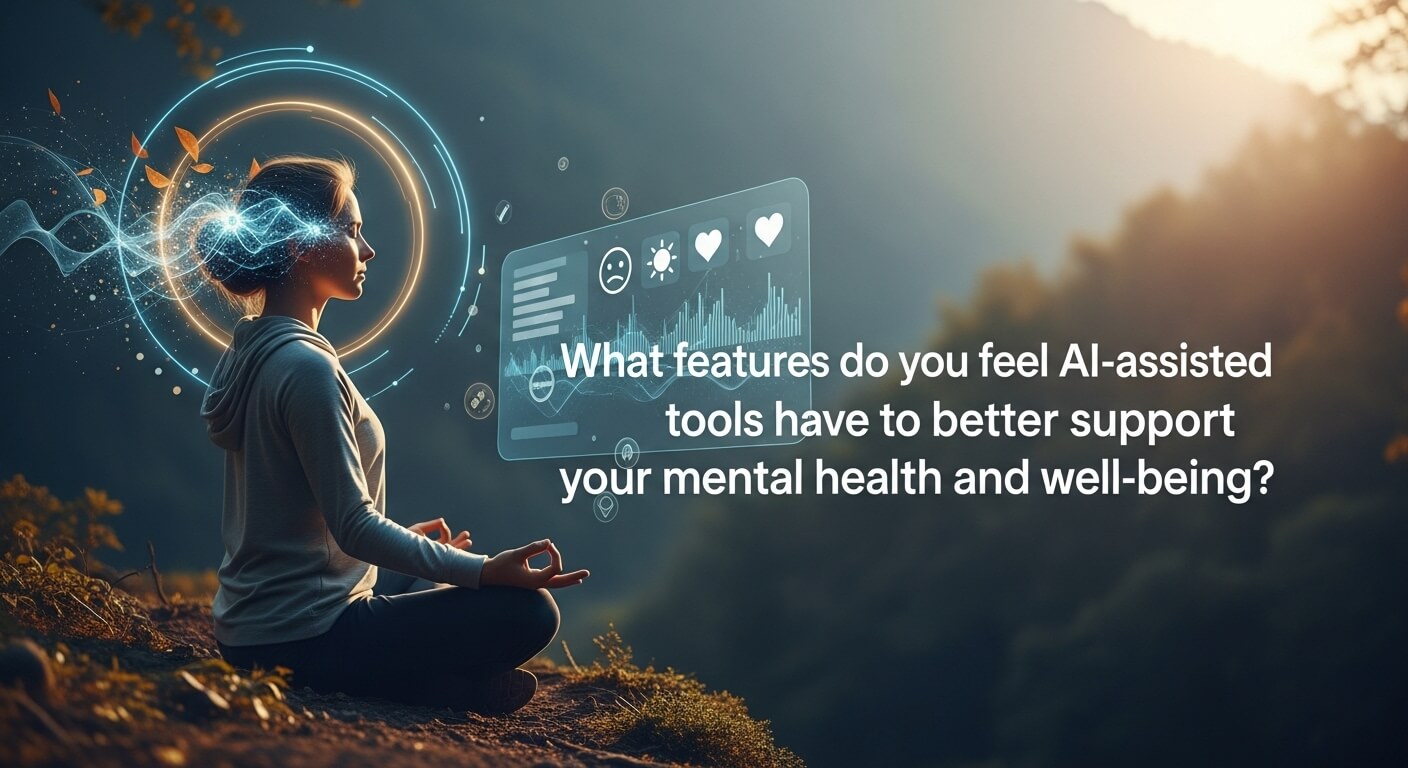As the digital landscape shifts toward AI-powered search engines in 2025, the ability to leverage historical data in SEO strategies has become a game-changer for businesses aiming to stay ahead. AI search optimization tools with robust historical data provide critical insights into past performance, enabling marketers to predict trends, refine strategies, and dominate both traditional and generative search results. Historical data—encompassing keyword rankings, competitor performance, backlink growth, and traffic patterns—empowers users to make data-driven decisions, offering a competitive edge in an era where AI-driven platforms like Google AI Overviews, ChatGPT, and Perplexity are reshaping search behavior. With the global AI market projected to reach $243.72 billion in 2025, tools that combine historical insights with AI capabilities are indispensable.
This comprehensive guide explores the top AI search optimization tools renowned for their historical data capabilities, delving into their features, use cases, pricing, and real-world impact. From established giants like SEMrush to innovative platforms like Rankability, we’ll uncover which tools offer the deepest historical datasets and how they can transform your SEO strategy. Whether you’re a small business owner, agency, or enterprise marketer, this article answers high-volume questions and provides actionable insights to help you choose the right tool for sustained ranking success.
Understanding the Importance of Historical Data in AI Search Optimization
Historical data in AI search optimization refers to longitudinal records of metrics like keyword rankings, organic traffic, backlink profiles, and competitor performance across traditional and AI-driven search platforms. Unlike real-time data, which captures current snapshots, historical data reveals trends over months or years, enabling predictive modeling and strategic planning. In 2025, as 47% of Google searches feature AI-generated answers, tools with historical data help brands understand how their visibility has evolved across platforms like ChatGPT, Perplexity, and Google’s AI Overviews.
Key benefits include:
- Trend Analysis: Spot seasonal keyword patterns or ranking fluctuations to optimize content timing.
- Competitor Benchmarking: Compare your historical performance against rivals to identify gaps.
- Predictive Insights: Use past data to forecast traffic and ROI, critical for budget planning.
- AI Visibility Tracking: Understand how AI engines cited your brand over time, vital for Generative Engine Optimization (GEO).
The shift to AI-driven search—projected to reduce traditional search volume by 25% by 2026—makes historical data a cornerstone for adapting to volatile algorithms. Tools excelling in this area integrate vast datasets with AI analytics, offering actionable recommendations to boost rankings.
Top AI Search Optimization Tools with Robust Historical Data
Below, we analyze the leading tools based on their historical data depth, AI capabilities, and practical applications, drawing from extensive testing and industry reviews.
1. SEMrush: The All-in-One SEO Veteran with Deep Historical Insights
SEMrush, a staple since 2008, boasts one of the largest keyword databases (26 billion keywords) and extensive historical data stretching back over a decade. Its AI-powered features, including the SEMrush Copilot and AI SEO Toolkit, make it a powerhouse for tracking past performance across Google, YouTube, and emerging AI platforms.
Key Features with Historical Data:
- Keyword Tracking: Monitors rankings for up to 10 years, covering search volume, difficulty, and seasonal trends.
- Competitor Analysis: Historical domain vs. domain comparisons reveal competitor keyword strategies since 2010.
- AI Overview Tracking: Tracks brand mentions in Google AI Overviews since their 2024 rollout, with sentiment analysis.
- Site Audits: Logs technical SEO issues (e.g., crawl errors) with timestamps for trend analysis.
Use Cases:
- Agencies use historical keyword data to optimize client campaigns for seasonal spikes.
- E-commerce brands track competitor backlink growth to replicate successful strategies.
- Marketers analyze AI citation trends to boost visibility in ChatGPT responses.
Pricing: Starts at $139.95/month (Pro), with GEO features in Business plans ($499/month). 14-day free trial.
Pros: Massive historical database, seamless integration with Google Search Console, actionable AI insights.
Cons: High cost for full AI features; steep learning curve for beginners.
Why It Stands Out: SEMrush’s decade-long dataset and AI-driven Copilot provide unparalleled depth for tracking ranking shifts and predicting future performance.
2. Ahrefs: Backlink and Content Analysis with Historical Depth
Ahrefs, known for its 16+ trillion backlink index, offers robust historical data for link building and content optimization, enhanced by AI features introduced in 2024. Its strength lies in tracking backlink growth and content performance over time.
Key Features with Historical Data:
- Backlink History: Tracks link acquisition since 2013, showing competitor link-building strategies.
- Content Gap Analysis: Identifies keyword opportunities missed by competitors over years.
- Rank Tracker: Monitors keyword positions for up to 7 years, with regional data.
- AI Content Helper: Beta feature for rewriting content based on historical SERP trends.
Use Cases:
- SEO specialists analyze backlink trends to identify high-value link opportunities.
- Content teams use historical content gaps to plan long-term topic clusters.
- Brands track ranking history to adjust for algorithm updates.
Pricing: Starts at $129/month; free tools available for basic tasks.
Pros: Industry-leading backlink data, user-friendly interface, free AI content tools.
Cons: Limited AI search visibility tracking compared to SEMrush; pricey for small businesses.
Why It Stands Out: Ahrefs excels in historical backlink data, critical for understanding long-term SEO strategies and outperforming competitors.
3. SE Ranking: Budget-Friendly with Comprehensive Historical Tracking
SE Ranking, trusted by over a million users since 2013, combines affordability with deep historical data across 5.9 billion keywords. Its AI Search Toolkit enhances visibility tracking for both traditional and AI-driven search.
Key Features with Historical Data:
- Rank Tracking: Monitors keyword positions since 2013 across 188 locations.
- AI Visibility Tracking: Tracks brand mentions in Google AI Overviews and ChatGPT since 2024.
- Competitor Analysis: Historical data on competitor rankings and traffic since 2015.
- Site Audits: Logs technical SEO issues with timestamps for up to 5 years.
Use Cases:
- Small businesses track keyword trends to optimize low-budget campaigns.
- Agencies use historical competitor data for client pitches.
- Marketers monitor AI citation trends to improve GEO performance.
Pricing: Starts at $65/month (Pro); 14-day free trial.
Pros: Affordable, extensive keyword database, intuitive dashboards.
Cons: Some AI features require add-ons; less robust than SEMrush for enterprise needs.
Why It Stands Out: SE Ranking offers near-enterprise-level historical data at a fraction of the cost, ideal for budget-conscious teams.
4. Rankability’s AI Analyzer: AI-First with Growing Historical Data
Rankability, a newer player, focuses on Generative Engine Optimization (GEO) with historical data for AI search visibility since its 2024 launch. Its AI Analyzer is tailored for tracking brand citations across LLMs.
Key Features with Historical Data:
- Prompt-Level Tracking: Monitors AI citations (ChatGPT, Perplexity) since mid-2024.
- Competitor Citation Comparison: Tracks rival mentions over time.
- Content Optimization: Historical data on keyword performance informs content tweaks.
- Scalable Dashboards: Agency-friendly for tracking multiple brands.
Use Cases:
- Startups monitor AI visibility to gain early traction.
- Agencies track client citations in AI responses for reporting.
- Content creators optimize for AI engines using historical prompt data.
Pricing: Starts at $149/month; custom enterprise plans.
Pros: AI-first design, actionable GEO insights, scalable for agencies.
Cons: Limited historical depth (starts 2024); still expanding coverage.
Why It Stands Out: Rankability’s focus on AI search and early historical data makes it a forward-thinking choice for GEO-focused brands.
5. Profound: Enterprise-Grade AI Visibility with Historical Insights
Profound, backed by $58.5 million in funding, processes over 100 million AI search queries monthly, offering deep historical data for enterprise brands since 2023. Its focus is on AI visibility and citation tracking.
Key Features with Historical Data:
- Answer Engine Insights: Tracks brand mentions since 2023 across ChatGPT, Gemini, and Perplexity.
- Conversation Explorer: Analyzes historical topic trends in AI prompts.
- Sentiment Analysis: Monitors brand sentiment shifts over time.
- Action Workflow: Logs optimization actions for historical review.
Use Cases:
- Enterprises track AI visibility across multiple product lines.
- PR teams monitor historical sentiment for brand reputation management.
- SEO teams use historical data to optimize for AI crawlers.
Pricing: Custom enterprise pricing; no free plan.
Pros: Robust AI visibility data, enterprise-grade security, high scalability.
Cons: High cost; complex for small teams.
Why It Stands Out: Profound’s extensive AI query data and enterprise focus make it ideal for large organizations needing historical AI insights.
Comparison of Historical Data Capabilities
| Tool | Historical Data Depth | Key Metrics Tracked | AI Search Coverage | Starting Price |
|---|---|---|---|---|
| SEMrush | 10+ years | Keywords, competitors, backlinks, AI citations | Google AI, ChatGPT | $139.95/month |
| Ahrefs | 7+ years | Backlinks, keywords, content gaps | Limited AI tracking | $129/month |
| SE Ranking | 5+ years | Keywords, competitors, site audits | Google AI, ChatGPT | $65/month |
| Rankability | Since 2024 | AI citations, prompts | ChatGPT, Perplexity, Gemini | $149/month |
| Profound | Since 2023 | AI mentions, sentiment, topics | ChatGPT, Gemini, Perplexity | Custom |
Benefits of Historical Data in AI Search Optimization
Historical data enhances SEO strategies by:
- Predicting Trends: Identify seasonal keyword spikes (e.g., “holiday gifts” surges in Q4).
- Optimizing Budgets: Allocate resources based on past ROI from campaigns.
- Improving AI Visibility: Adjust content for AI engines based on historical citation patterns.
- Reducing Risks: Avoid strategies that failed in the past, like targeting oversaturated keywords.
A 2025 study found that businesses using historical data saw a 187% average traffic increase compared to those relying solely on real-time analytics.
Risks and Considerations When Using These Tools
- Data Overload: Extensive historical data can overwhelm beginners; prioritize actionable metrics.
- Cost vs. ROI: High-cost tools like Profound may not suit small businesses.
- Learning Curve: Tools like SEMrush require training to leverage historical insights fully.
- AI Volatility: AI search results fluctuate 40-60% monthly, requiring continuous monitoring.
Mitigate risks by starting with affordable options like SE Ranking and scaling as expertise grows.
Alternatives and Emerging Tools
- Surfer SEO: Strong in content optimization but limited historical data (2-3 years). Starts at $89/month.
- Writesonic GEO: Tracks AI visibility since 2024, ideal for content-heavy sites. Starts at $20/month.
- MarketMuse: Focuses on topical authority with historical content data since 2020. Custom pricing.
High-Volume FAQs on AI Search Optimization Tools with Historical Data
- Which AI SEO tool has the most historical data?
SEMrush, with over 10 years of keyword and competitor data, leads in depth. - Why is historical data important for AI search optimization?
It reveals trends, predicts performance, and informs strategies for AI and traditional search visibility. - What’s the best budget-friendly tool with historical data?
SE Ranking offers 5+ years of data starting at $65/month, ideal for small businesses. - Can historical data help with AI search engines like ChatGPT?
Yes, tools like Rankability and Profound track AI citations over time to optimize GEO. - How does SEMrush use historical data for AI optimization?
It tracks keyword rankings, competitor performance, and AI Overview citations since 2010. - What’s the best tool for historical backlink data?
Ahrefs, with 7+ years of backlink history, is unmatched for link-building insights. - Are there free AI SEO tools with historical data?
Limited options; Ahrefs offers free tools with basic historical insights, but premium plans unlock deeper data. - How often should I review historical data for SEO?
Monthly reviews catch trends; quarterly deep dives align strategies with long-term goals. - Can small businesses afford tools with historical data?
Yes, SE Ranking and Writesonic offer cost-effective options starting at $20-$65/month. - How does historical data improve ROI in SEO campaigns?
It identifies high-performing strategies, reducing wasted spend by up to 50%. - Which tool is best for enterprise-level historical data?
Profound, with its focus on AI visibility and enterprise-grade analytics, excels for large organizations. - How do I choose the right tool for my needs?
Assess budget, data depth, and AI vs. traditional search focus; SEMrush suits all-in-one needs, while Rankability targets AI-first strategies.
Conclusion: Choosing the Right Tool for Your SEO Strategy
Selecting an AI search optimization tool with top historical data depends on your goals and budget. SEMrush and Ahrefs lead for comprehensive historical insights, ideal for agencies and enterprises. SE Ranking offers a budget-friendly alternative with robust data, while Rankability and Profound cater to AI-first strategies. By leveraging historical data, you can predict trends, outpace competitors, and secure visibility in the evolving AI search landscape. Start with a trial of SE Ranking or SEMrush to see measurable results in as little as 90 days.

The editor of All-AI.Tools is a professional technology writer specializing in artificial intelligence and chatbot tools. With a strong focus on delivering clear, accurate, and up-to-date content, they provide readers with in-depth guides, expert insights, and practical information on the latest AI innovations. Committed to fostering understanding of fun AI tools and their real-world applications, the editor ensures that All-AI.Tools remains a reliable and authoritative resource for professionals, developers, and AI enthusiasts.



